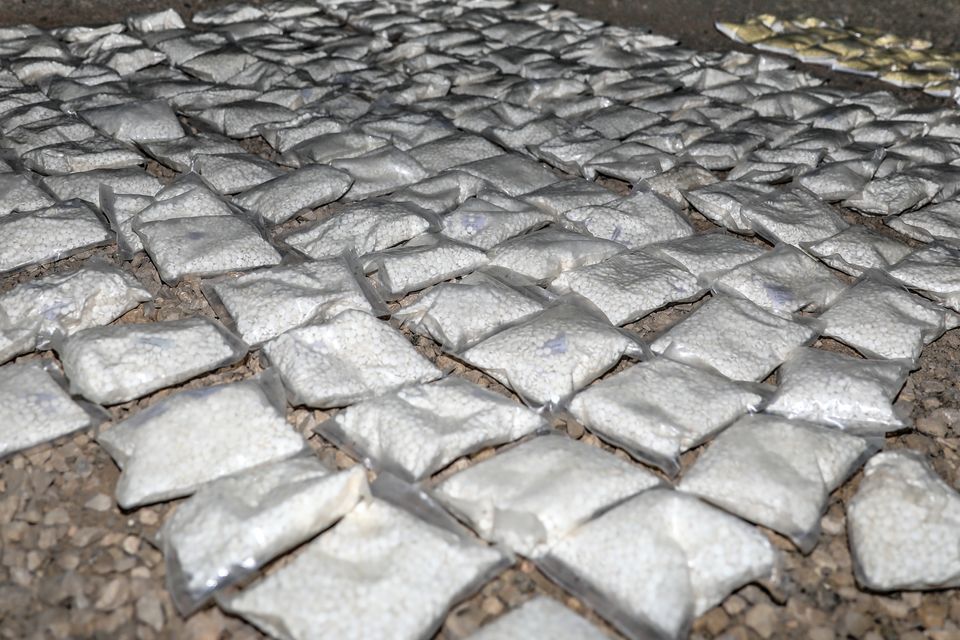
The Captagon Act Explained: Opportunities and Limitations
On December 23, 2022, U.S. President Joe Biden signed the annual National Defense Authorization Act (NDAA), which included the “Countering Assad’s Proliferation Trafficking And Garnering Of Narcotics Act,” colloquially known as the Captagon Act. The Act seeks to develop a coordinated strategy between U.S. Federal agencies to “deny, degrade and dismantle…narcotics production and trafficking networks” that are connected to the Syrian government or otherwise linked to Syrian President Bashar Al-Assad.
While the Act represents a positive step for U.S. authorities and allies in addressing the captagon trade, it only requires the creation of a written strategy, with no additional, concrete actions at this stage. Furthermore, the Act does not address the steep challenges that have historically faced other attempts to address state-sponsored, black-market drug trafficking, and it is unclear how the proposed strategy will overcome these obstacles.
Why Captagon?
Captagon is an addictive drug that combines caffeine, amphetamines, and other stimulants. Various illicitly manufactured versions of captagon are used recreationally across the Middle East where it is popular because of its ability to bring users increased energy and sensations of euphoria. In conflict-affected settings, fighters also take captagon during combat for its induced stamina and supposed ability to dull fear.
Over the course of the Syrian conflict, the captagon trade has become a powerful source of revenue for the Syrian government, which has increasingly been labeled a “narco-state” due to the centricity of the illegal drug industry in sustaining state power amidst economic collapse. Investigations have revealed that the Syrian government is highly dependent on, and both directly and deeply involved in the captagon trade, with captagon now the country’s most valuable export. The captagon trade’s massive economic value – estimated at more than $5 billion annually – enables the Syrian government and its allies to continue financing abuses of human rights violations, despite widespread sanctions cutting the government off from traditional sources of revenue.
An Overview of The Captagon Act
The Captagon Act states that the Syrian government’s trade in captagon is a “transnational security threat” to the U.S. government. Therefore, the Act is designed to identify and address only captagon production and trafficking networks that are directly linked to Assad. The act represents pushback against normalizing relations with the Assad government and seeks to isolate Syria in order to pressure it to adhere to international laws and norms before rejoining the international community.
The Act requires the development of a U.S. government strategy to disrupt the captagon trade, written by numerous branches of the U.S. Federal Government, including the Departments of Defense, State, Treasury, National Intelligence, the Drug Enforcement Administration, among other Federal agencies. By mid-June 2023, the Act requires the heads of these agencies to put forth a strategy that will:
- Target and weaken networks that support Assad-linked narcotics infrastructure, particularly by building the capacity of partner countries. Such partner countries may include Jordan, Lebanon, and possibly U.S.-allied Gulf states.
- Assess possibilities for use of various authorities established by existing U.S. legislation, including the Caesar Act and other U.S. counter-narcotics legislation.
- Leverage US diplomacy and multilateral institutions to economically pressure the Syrian government and disrupt Assad-linked narcotics infrastructure.
- Present a public communications strategy to increase awareness of the links between Bashar al-Assad and the illicit narcotics trade.
- Provide information on countries that are affected by the current captagon trade, and assess both the counter-narcotics capacities of those countries and opportunities for US assistance in those countries’ counter-narcotics efforts.
Opportunities and Challenges
Ultimately, the United States has a limited toolkit to disrupt the Captagon trade. The U.S. has already imposed significant sanctions, but these are less effective against illicit economic activities. To cut off this funding stream, a key strategy must be to reduce demand for the drug. Yet, such campaigns rarely prove successful.
Lessons learned from the U.S. counter-narcotics operations in Afghanistan, where the opium trade financed a massive war economy, reveal that “no counternarcotics program led to lasting reductions in” the drug’s cultivation and production. An official report reflecting on these efforts found that “improved security, governance, and economic growth” were necessary for counter-narcotics efforts to be successful. In the Syrian context, the U.S. has limited ability to improve these larger, societal factors.
In effect, demand-side counter-narcotics campaigns often harshly punish users, while leaving traffickers and cartel profiteers unscathed, even in countries where the state itself is not a beneficiary of the trade. In Syria, where the government has a vested interest in maintaining demand, and where ongoing conflict itself generates continued demand among fighters, the U.S. government must coordinate with partners in the region to creatively reduce demand. Yet, in doing so, authorities must be careful to avoid harshly punishing individual users or their communities. The captagon trade is taking an increasing civilian toll on communities in Syria and Syria’s border regions, who face harsh economic conditions and lack of physical security that force widespread reliance on captagon-related income. In Syria, Jordan, and other neighboring countries, drug usage is rapidly increasing, especially among youth, as the influence of the trade spreads. In developing and implementing the strategy put forth by the Act, authorities should prioritize the well-being of the communities most affected by the trade.
________________________
For more information or to provide feedback, please contact SJAC at [email protected] and follow us on Facebook and Twitter. Subscribe to SJAC’s newsletter for updates on our work